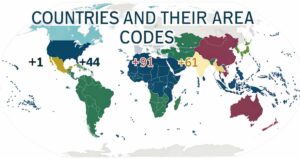Empowering India’s Agro-Exports: The Rise of Next-Gen Entrepreneurs
5 min read
India’s agricultural export sector is experiencing a quiet but powerful transformation, driven by a new generation of entrepreneurs who blend innovation, technology, and a deep sense of national purpose. As the country’s agricultural exports crossed the $50 billion mark in 2024, according to the Ministry of Commerce, small and medium enterprises (MSMEs) are emerging as critical players in reducing India’s trade deficit, which stood at $192 billion in 2022. These businesses, often led by young visionaries, are leveraging digital tools, strategic partnerships, and global trade platforms to place Indian products on the world stage. Among them is Pratik Prakash Jadhav, a serial entrepreneur whose ventures are redefining how MSMEs approach global markets.
The India Prime Times team recently met Jadhav in Mumbai, where his energy and commitment to transforming India’s agro-export landscape were palpable. As the founder of EXIM Internationals, a company focused on agro-exports, and Sab Kuch Bollywood, a media platform fostering cultural and entrepreneurial conversations, Jadhav is a testament to the power of resilience and systems-driven thinking. Our conversation with him revealed not just his personal journey but also the broader shifts reshaping India’s export ecosystem.
The Rise of Agro-Exports in India
India’s agricultural exports have seen steady growth, with spices, pulses, and processed foods leading the charge. In 2024, the Agricultural and Processed Food Products Export Development Authority (APEDA) reported that India’s agro-exports grew by 8% year-on-year, driven by demand in markets like the EU, USA, and Southeast Asia. MSMEs, which account for nearly 40% of India’s total exports, are at the heart of this growth. Yet, these small businesses often face significant hurdles, from complex documentation to financial constraints and global supply chain disruptions.
Jadhav’s EXIM Internationals, launched in 2022, is tackling these challenges head-on. His mission is clear: to transform India into a leading agro-export powerhouse. “I grew up dreaming of representing India on the cricket field,” Jadhav shared with our team. “When that didn’t happen, I found another way to serve my country, by putting Indian products on global shelves.” His vision aligns with India’s broader economic goals, as the government pushes to reduce the trade deficit through initiatives like the Production-Linked Incentive (PLI) scheme and Free Trade Agreements (FTAs) with countries like the UK and UAE.
Overcoming Challenges with Resilience
Jadhav’s journey has not been without setbacks. In 2022, just as EXIM Internationals was finding its footing, he faced a devastating ₹30 lakh fraud by Dubai-based importers. The loss was not just financial but deeply personal. “It felt like my dream was crumbling,” he told us. Yet, instead of retreating, Jadhav doubled down on compliance, digital verification, and risk management. By late 2023, EXIM had partnered with 25 MSMEs across Maharashtra, Punjab, and Andhra Pradesh, using AI-driven market analytics to identify high-demand export opportunities in spices, pulses, and processed foods.
The results speak for themselves. Within six months, EXIM’s partner MSMEs saw an average 15% increase in export revenue, a testament to Jadhav’s data-driven approach. His emphasis on automation, cutting documentation processing time by 30%, and structured Standard Operating Procedures (SOPs) has helped these small businesses compete in stringent markets like the EU and USA. “Exporting should be as simple as ordering from an e-commerce platform,” Jadhav said, highlighting the inefficiencies that still plague the sector.
Leveraging Technology and Partnerships
A key pillar of Jadhav’s strategy is collaboration with platforms like the Federation of Indian Export Organisations (FIEO). “FIEO opened doors for me,” he explained. “Their webinars, B2B delegations, and export promotion schemes gave me the confidence to compete globally.” Through FIEO, EXIM accesses subsidies covering up to 5% of freight costs, making Indian products more competitive. This support is crucial for MSMEs, which often lack the capital to navigate complex global trade systems.
Jadhav’s use of technology sets him apart. By integrating AI and Customer Relationship Management (CRM) systems, EXIM streamlines operations and identifies niche markets. For instance, their analytics pinpointed growing demand for organic spices in Europe, enabling partner MSMEs to tailor their offerings. This tech-forward approach aligns with global best practices, positioning India’s MSMEs to compete with larger exporters from countries like China and Brazil.
A Broader Vision: Media and Cosmetics
Beyond exports, Jadhav is diversifying his entrepreneurial portfolio. His YouTube podcast and Instagram platform, Sab Kuch Bollywood, launched in April 2025, has already garnered 300,000 monthly viewers on Instagram and 50,000 YouTube views. The platform, which explores film, culture, and entrepreneurship, fosters community engagement and sparks innovative ideas. “Wide-ranging interests sharpen your business acumen,” Jadhav noted during our meeting, emphasizing how his media venture informs his business strategies.
Looking ahead, Jadhav is preparing to enter India’s booming $20 billion beauty market with a new cosmetics line. Focused on locally sourced, cruelty-free ingredients, the brand will target Tier 2 and Tier 3 cities through digital marketing. This move reflects a growing trend among Indian entrepreneurs to tap into domestic consumer markets while maintaining a global outlook.
Advice for Aspiring Exporters
Jadhav’s advice to new exporters is grounded in his own hard-won experience. “Don’t be overwhelmed by the complexity,” he urged. “Start small, keep learning, and use platforms like FIEO to your advantage.” He emphasized the importance of patience and systems-thinking, noting that SOPs and compliance are critical for building international credibility. “Exporting transforms you,” he added. “It forces you to think like a global citizen and builds discipline that changes your mindset.”
The Road Ahead for India’s Exports
India’s agro-export sector stands at a critical juncture. With FTAs opening new markets and government initiatives supporting MSMEs, the potential for growth is immense. Yet, challenges like tariff wars, supply chain disruptions, and geopolitical tensions, such as Indo-Pak relations or global port strikes, require exporters to be agile and strategic. Jadhav’s approach, blending technology, partnerships, and resilience, offers a blueprint for navigating these complexities.
As India aims to boost its export share in global markets, entrepreneurs like Jadhav are leading the charge. His work with EXIM Internationals not only empowers small producers but also contributes to India’s broader economic goals. “I may have lost ₹30 lakhs in my first orders,” he reflected, “but I gained a mindset that can’t be shaken. This is just the beginning.”
The India Prime Times team left our conversation with Jadhav inspired by his clarity of purpose and commitment to nation-building. As India’s agro-export sector continues to evolve, it is entrepreneurs like him, armed with innovation, grit, and a vision for a self-reliant India, who will shape its future.





